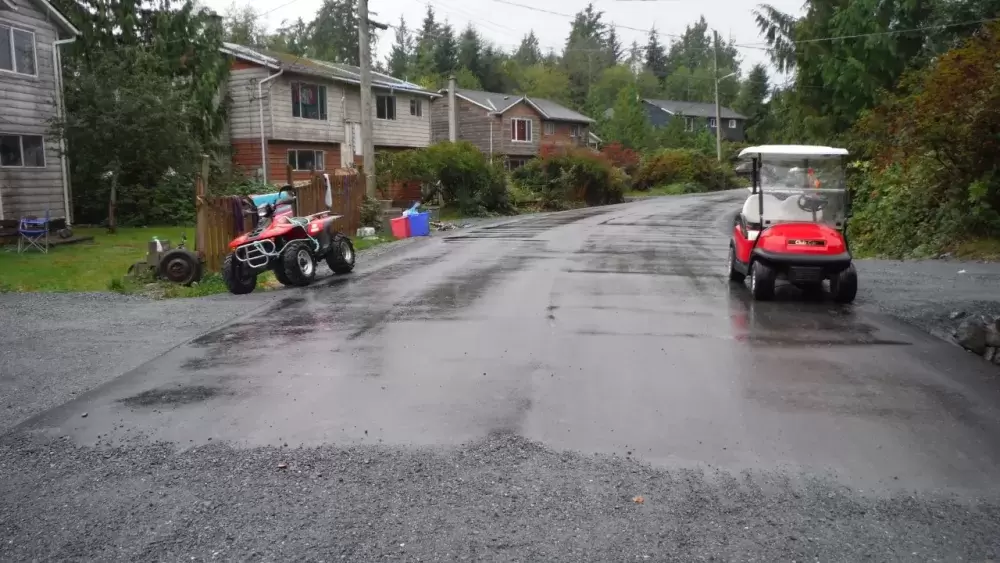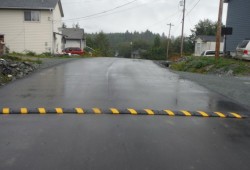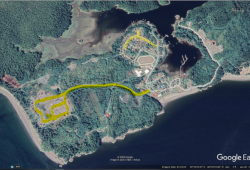The road to Happy Hill in Ahousaht just got a lot smoother thanks to a fresh layer of asphalt poured over the old pothole-pocked gravel road. Residents were pleased to see the section of newly paved road that happened in early September.
But it may be a long while before more paving is carried out, thanks to the effects of the COVID-19 pandemic on the federal budget.
Elected Chief Greg Louie says the nation has been negotiating with the federal government for more than six years to get the road upgrades done in the rapidly expanding village.
“A couple of years ago we had an agreement that the paving would take place in three phases, starting with Happy Hill,” said Louie.
Ahousaht, located on Flores Island, is accessible only by boat or float plane. Vehicles in the village are barged in.
Happy Hill is a large residential neighborhood located near the school. The road starts west of the school field heading uphill past homes. There is a cul-de-sac at the top of the hill, then the road continues southeast past a few more homes before looping back north to the main road by the school.
Chief Louie said a portion of Happy Hill was completed but there is no clear timeline for the resumption of paving.
“Everything changed – instead of three phases of paving they (Indigenous and Northern Affairs Canada) are suggesting it be done in 17 phases,” said Louie.
He pointed out that doing the paving in 17 phases would mean that only small segments of road would be paved at a time. The result would be dramatically increased costs in transporting equipment and materials from Tofino to Flores Island by barge.
The first road to be paved in Ahousaht leads up to a residential neighborhood called Lot 363. Louie said that project used 2,000 tons of asphalt. The Happy Hill road requires 800 tons of asphalt. If the paving were to be done in 17 phases, that would mean additional costs associated with ferrying equipment and materials back and forth an additional 14 times.
When asked if he thought COVID-19 pandemic costs impacting the federal budget caused the delay of the paving project, Louie agreed that it has had its affect.
“But we have been talking to Catherine Lappe, (Regional Director of Indigenous and Northern Affairs) and we want to be optimistic,” he told Ha-Shilth-Sa.
A representative for the Government of Canada said it recognizes the importance of building safe and reliable roads to improve the quality of life for First Nations, and that Ottawa is committed to working with Ahousaht leadership to advance this.
“To date, Indigenous Services Canada (ISC) has provided $1.7 million for the paving of roads in Ahousaht and is actively working with Ahousaht First Nation to source the remaining funding for this project,” said the representative in an email. “Indigenous Services Canada is continuing to work closely with provincial partners and First Nations to monitor and address COVID-19 related delays and cost escalations to support communities in completing their projects.”
Ahousaht leaders are confident the work will eventually be completed.
“People are happy, the kids said it is so beautiful,” said Louie.









